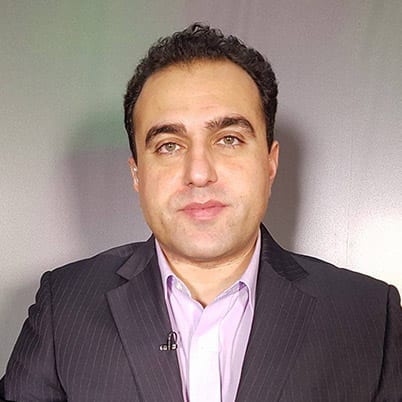With the referendum on proposed Kurdish independence just two weeks away, the stage is being set for the gravest political and potential military crisis in post-Baathist Iraq. Months of intense lobbying by Iranian, Turkish and even American officials and interlocutors has failed to dissuade the Iraqi Kurdish leadership from staging this catastrophically divisive referendum.
In his combative interview with the BBC, the president of the autonomous Iraqi Kurdistan region, Masoud Barzani, left no doubt that the referendum is the first formal step in the march toward full independence. More ominously, Barzani appeared to acknowledge that plans to officially annex Kirkuk may well spark a major war.
Every regional and extra-regional power, including the United States, is opposed to Kurdish statehood, with one exception. Israel. Whilst sections of the Iraqi Kurdish media are jubilant at this rhetorical support, Kurdish leaders will have to carefully weigh up the pros and cons of Israeli support before they formally declare statehood.
While Israel will undoubtedly prove a strong ally of an independent Kurdish state, it is the support it is willing to offer in the run-up to independence that will prove decisive. Even rhetorical Israeli support will drastically inflame the situation and bring the Kurds into armed conflict with the pro-Iranian Shia militias massed to the south of Kirkuk.
Read: Israeli flag will be raised in independent Kurdistan, claims prominent Likud member
A peripheral policy
Israel’s support for nationalist Kurdish movements is strong and long-standing, dating back to the early 1960s. This policy is part of Israel’s “Alliance of the Periphery” doctrine, which in short amounts to developing strong ties to non-Arab states on the periphery of the Middle East with a view to combating the Arab boycott of the Jewish state.
Whilst the periphery doctrine was originally aimed at Turkey, Iran and Ethiopia, with time it expanded to incorporate non-state actors, principally the Kurds, whose quest for statehood Israel has consistently supported for decades.
Analysis centred on the putative “collapse” of the periphery doctrine is likely to prove premature. Whilst it is true that Turkey can no longer be regarded as a reliable Israeli partner, this will motivate Israeli strategists and operatives to seek out and develop new peripheral partners. Moreover, the peripheral policy survived its biggest crisis nearly forty years ago when almost overnight Iran went from an informal Israeli ally to the most vociferous enemy of the Jewish state.
Given this chequered history of missteps and strategic miscalculations, analysts are right to be wary of how useful this periphery doctrine is. However, as long as Israel’s occupation of Palestine continues to draw strong Arab, Muslim and broader international opposition, Israel will seek to identify and develop stealthy means by which to undermine, isolate and eventually exhaust this opposition.
It is in this context that leading Israeli strategists, including former foreign minister Shlomo Ben-Ami, push the case for Kurdish independence, primarily by trying to align Kurdish statehood with the interests of the United States and the West in general. This devious perspective is entirely in keeping with the perennial Israeli policy of equating its own core interests with that of the West. In this instance, Israeli diplomacy and wider lobbying efforts will try to sell Kurdish independence to policymakers in Washington, by presenting it as the best long-term strategy to contain Iranian influence in Iraq.
Read: Kurds deny seeking Israel’s assistance in separation from Iraq
The road to war
Apart from strong rhetorical support, what practical steps can Israel take to support the Iraqi Kurdish quest for statehood? This is a vexing question, as on the face of it Israeli influence in Iraqi Kurdistan is practically non-existent. This author spent the first half of 2009 in Iraqi Kurdistan working as a journalist and despite widespread rumours didn’t uncover any evidence of Israeli involvement in Kurdish affairs.
Yet this influence surely exists, particularly at the security and intelligence level. It is in part due to the Israeli connection that the Kurdish intelligence agency, the Asayish, has developed into one of the most capable intelligence agencies in the Middle East. In keeping with Kurdish national aspirations, the Asayish has grown in reach and capability, not only spying on regional countries, but even managing to run modest operations as far afield as the United Kingdom.
Indeed, qualified Kurdish independence in Iraq now seems all but inevitable. This appears to be the assessment of US intelligence services, Washington’s stated opposition to the issue notwithstanding. Qualified independence in this context implies highly contested statehood, lacking widespread international support and drawing immediate internal and external opposition.
#KurdishReferendum
The most immediate opponents to Kurdish statehood in Iraq are the Shia paramilitary forces, who alongside their political patrons in Baghdad, have deep-seated interests in Kirkuk, which is home to a sizeable Shia Turkmen population. The collapse of the Iraqi army in the face of Daesh’s sweeping advance in June 2014 has significantly changed the military security landscape in Kirkuk and the immediate areas to the south, bringing the Kurdish Peshmerga and Shia paramilitaries into dangerously close proximity.
The Shia paramilitaries, organised as Popular Mobilisation Units, reportedly maintain six military bases close to Kirkuk and are poised to engage the Peshmerga militarily should the need arise. From a purely speculative point of view, limited military engagements may follow the independence referendum as a means of deterring the Kurdish leadership from taking further steps toward formal independence.
From a broader strategic perspective, Israeli support for the Kurdish cause is a poisoned chalice for Kurdish nationalists in so far as it makes a sustainable Kurdish state unacceptable to Iran and by extension to its Shia allies in Iraq. But judging from Masoud Barzani’s combative rhetoric, he appears to be willing to take the risk.
The views expressed in this article belong to the author and do not necessarily reflect the editorial policy of Middle East Monitor.

![Kurdish flag [Kurdishstruggle/Flickr]](https://i0.wp.com/www.middleeastmonitor.com/wp-content/uploads/2017/04/2014_9_Kurdish-flag.jpg?fit=920%2C613&ssl=1)







